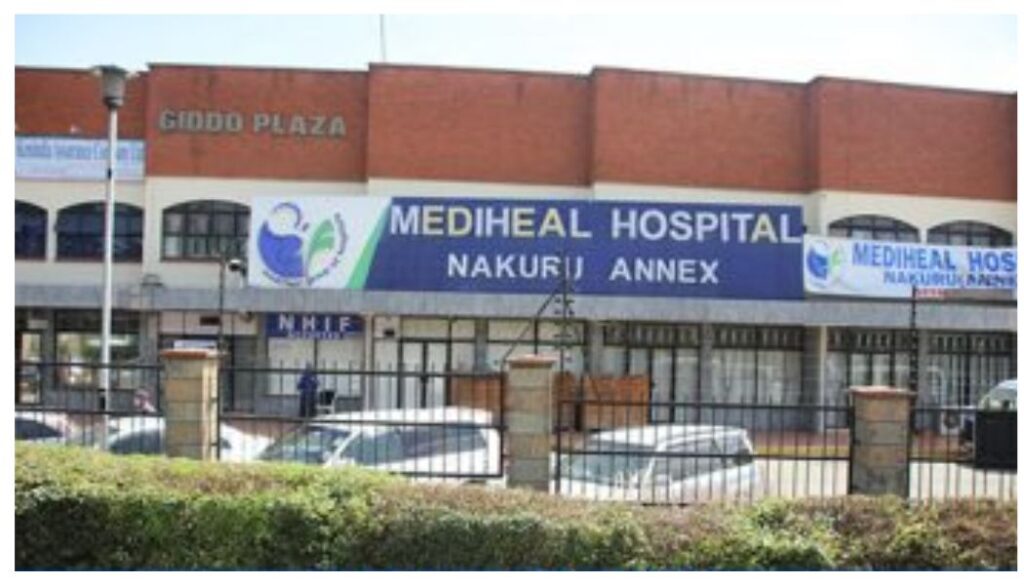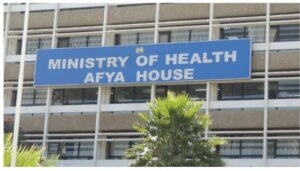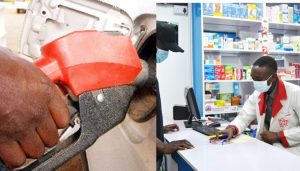Government probe implicates Mediheal Hospital in organs trafficking

Government probe implicates Mediheal Hospital in organs trafficking
Kenya’s Mediheal Hospital, long touted as a state-of-the-art transplant center, now stands at the center of a chilling organ trafficking scandal.
Investigations by government agencies have revealed possible illegal kidney trade operations within its Eldoret facility, raising grave ethical, legal, and medical concerns.
A recent fact-finding mission has unearthed suspicious transplant patterns, expired licenses, and troubling ties to foreign recipients—all painting a picture of a well-oiled, cross-border transplant syndicate operating in plain sight.
The most damning revelation, however, was that several kidney transplants were carried out by a lead nephrology consultant whose medical license had long expired—raising serious legal and ethical questions about how the hospital has operated under regulatory radar.
In a damning report tabled before Health Cabinet Secretary Aden Duale, the Kenya Blood Transfusion and Transplant Service (KBTTS) has raised the alarm over “suspicious activity for trafficking” at Mediheal Fertility and Transplant Center in Eldoret.
The report, based on an extensive investigation into 372 kidney transplants performed since 2018, hints at a possible organ trafficking network that spans Kenya, Uganda, and Rwanda.
Appointed by acting KBTTS CEO Dr. Maurice Wakwabubi, the 12-member fact-finding committee unearthed inconsistencies that point toward transplant tourism, commercialization of organs, and outright medical malpractice.
Among the red flags: the recurrent appearance of a person named Yusuf, listed as the next of kin in multiple transplant files involving foreign patients.
The committee flagged this repetition as suspicious, demanding immediate verification of Yusuf’s identity and his relationship with both donors and recipients.
The most damning revelation, however, was that several kidney transplants were carried out by a lead nephrology consultant whose medical license had long expired—raising serious legal and ethical questions about how the hospital has operated under regulatory radar.
Despite the committee’s cautious language that there is “no sufficient evidence,” the sheer volume of anomalies suggests otherwise.
The fact that Israeli nationals received transplants at Mediheal and quickly returned home echoes well-documented patterns of transplant tourism, a euphemism for organized organ trafficking in developing nations.
The investigative team found that out of the 372 transplants performed at the Eldoret facility, 4% of the patients died—a significantly high mortality rate given current global transplant standards.
Experts argue that mortality in well-regulated transplant centers hovers between 1–2%, and anything beyond this should trigger an internal review. Yet, no such audit appears to have occurred at Mediheal.
To compound the concern, the hospital’s lead nephrologist—the person overseeing kidney transplant procedures—was found to be operating without a valid medical license.
In any reputable health system, this would prompt an immediate closure of the surgical unit and possible criminal charges.
The fact that no such action has yet been taken points to systemic failure or high-level protection of the hospital’s interests.
The Kenya Renal Association (KRA) had already flagged Mediheal for unethical transplant practices in a statement issued on May 3 last year.
They cited allegations of “transplant commercialization and transplant tourism”—both of which are prohibited under Kenyan law and international ethical frameworks.
Government explains why money collected from tourists was banked in Swiss accounts
US issues statement on Kenya-led multinational security support mission in Haiti
Outrage after coffin business set up near special needs school
Ruto MP accuses Mt Kenya residents of being ringleaders in ‘Ruto must go’ movement
Another journalist killed in suspected hit-and-run case
Cleophas Malala goes after Rachel Ruto over Butere Girls incident
Following this warning, the Ministry of Health mandated KBTTS to investigate, leading to the current revelations.
While the report primarily focuses on the Eldoret-based facility, the scope of the investigation extended beyond Kenya’s borders.
The committee visited other Mediheal-linked transplant centers in Rwanda and Uganda, further reinforcing suspicions of a transnational organ trafficking network.
If verified, this would indicate a well-established syndicate exploiting legal loopholes in the East African region.
Organ trafficking is a multi-billion-shilling illicit trade, with poor, desperate donors often coerced or manipulated into giving up kidneys under false pretenses or for meager compensation.
The recipients—usually wealthy foreign nationals—pay huge sums to bypass long waiting lists in their home countries. What happens in the middle is a medical, ethical, and legal catastrophe for the region.
According to the KBTTS report, the lack of documented relationships between donors and recipients is a major cause for concern.
In ethical transplants, a donor must be a close relative or legal spouse unless otherwise authorized after thorough vetting. Mediheal’s files showed little to no proof of such ties—raising questions about whether these so-called donors were trafficked individuals lured by poverty or threats.
As this explosive scandal unfolds, calls are growing louder for the immediate suspension of Mediheal Hospital’s transplant license.
Civil society organizations and healthcare watchdogs are demanding accountability—not just from the hospital’s top brass, but also from the regulatory bodies that allowed such violations to persist unchecked for years.
The Mediheal organ trafficking saga is no longer a murmur—it is a national scandal. For Kenya to uphold its medical ethics and human rights record, swift action must follow.
Otherwise, the country risks becoming a global hotspot for illegal organ transplants—and its most vulnerable citizens the unwilling suppliers in this grim business.
Tensions flare as Algeria asks 12 French officials to leave
Government warns principals withholding KCPE and KCSE certificates
Oscar Sudi cheekily admits he didn’t go to school after acquittal on fake certificates
Government officials among 8 suspected land fraudsters detained for 4 days
Kenyan forces in Haiti on high alert as gangs plan hostile takeover
Follow us







